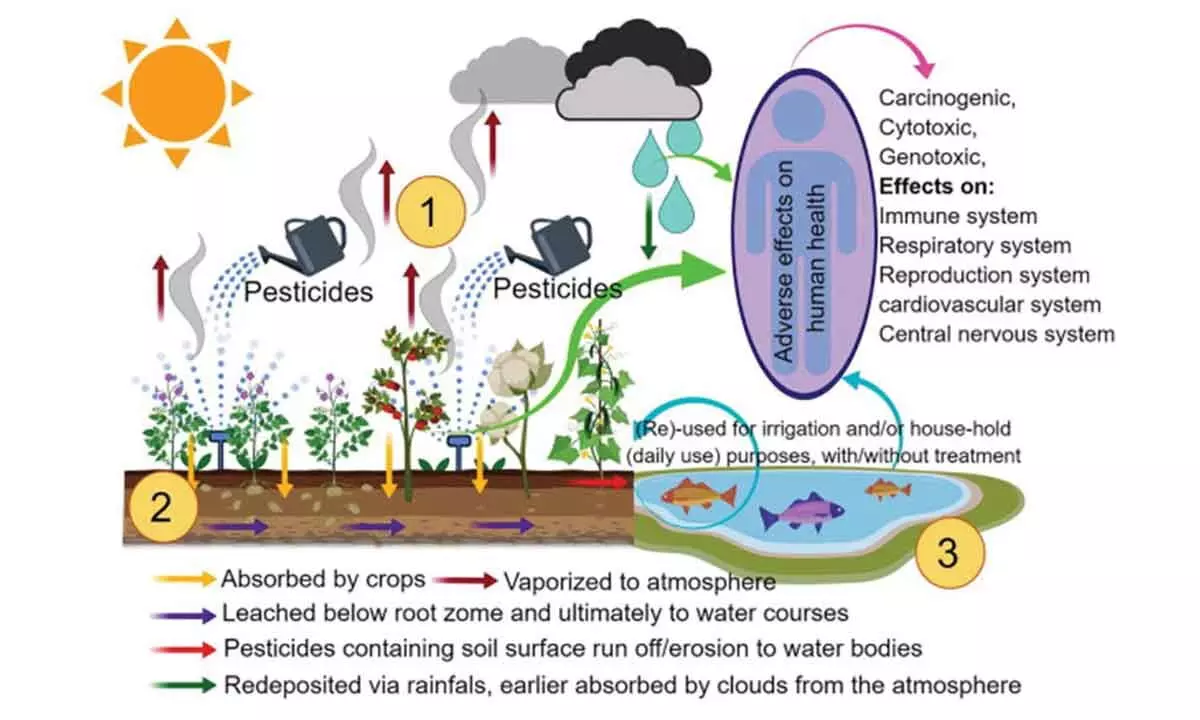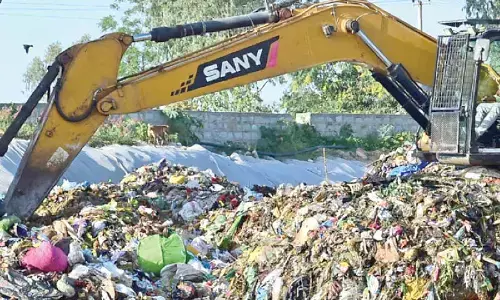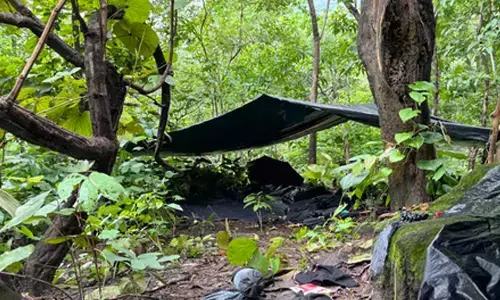A small step toward eco restoration

For any long journey, it is the first step that is crucial. Given that we are in the midst of sixth mass extinction, any small step towards eco-restoration is welcome.
For any long journey, it is the first step that is crucial. Given that we are in the midst of sixth mass extinction, any small step towards eco-restoration is welcome. I am talking of the European Commission's proposal to regulate pesticides use in Europe to avoid an ecosystem collapse.
"Legally binding targets for all member states to restore wildlife on land, rivers and sea were announced today, alongside a crackdown on chemical pesticides," reports The Guardian. This proposal came up on June 22, and besides other components it plans to reduce pesticides usage by half by the year 2030.
The proposal, which is primarily a regulation, should prompt G-7 and G-20 countries, to also take a lead by initiating similar policies that aims at reversing the ecological imbalance the world is presently faced with. These policies need to come with a definite timeline, because the world cannot afford pious intentions that remain only on paper.
While roughly Euro100 billion will be available in the EU for biodiversity conservation, and ecosystem restoration, the aim is restore 20 per cent of land and sea by 2030. In addition, if I understand correctly, EU had earlier decided to spend 20 per cent of the proposed allocation of Euro 387 billion in farm subsidies between 2021-2027 budget on 'eco-schemes' that protect the environment.
In any case, there is bound to be an over-lap. But what is significant here is the intent that drives policy makers to come up with strategies and policy approaches that help reduce drastically the massive destruction that many prefer to call it literally as an 'ecocide' the world is faced with. Studies in Germany and Puerto Rico for instance have shown that 40 per cent of insect species may be faced with extinction in the next few years, and 41 per cent have seen population decline in the past decade. Conservatives call it 'dreadful' and many other fear that it is leading to a 'catastrophic collapse.'
According to the Centre for Biological Diversity, "When the number of individuals in a population or species drops too low, its contributions to ecosystem functions and services become unimportant, its genetic variability and resilience is reduced, and its contribution to human welfare may be lost."
Regarding the new proposal, Ariel Brunner of BirdLife Europe was quoted as saying in The Guardian article: "It is a huge milestone. It really has the potential to turn around our relationship with nature." But other environmentalists are more cautious. They would like to see the EU proposal to be in tandem with emphasis on agricultural practices that put too much emphasis on corporate prescriptions like 'precision technology' and 'climate smart crops' essentially embracing the controversial genetically modified crops.
Transformation of the food systems cannot rely on the same kind of mistakes that were earlier committed in the name of ensuring food security. From a chemical push, which has led the world towards a climate apocalypse, the world needs to swing back to working with nature. Instead of moving ahead with 'business as usual' approach, no restoration of ecosystem functions is possible unless a serious effort is made to reorient agriculture towards regenerative farming practices or agro-ecology. In that connection, a lot was expected from the recently concluded UN Food and Agriculture Organisation (FAO) Summit on Food Systems transformation, but it seems it clearly failed to emerge out of the agribusiness control.
While the EU's shift towards ecosystem restoration will be keenly watched, the Intergovernmental Panel on Climate Change (IPCC) too is calling for changes in economic thinking and approach that moves away from GDP-based growth model that the global economic design hinges on. Although the corporate-owned media is not talking about it, and for obvious reasons, the bigger tragedy is that most developing and least developed countries are in fact aggressively pushing for GDP-oriented economic growth strategies, which in other words means more destruction of natural resources. Simply put, what the rich countries are trying to salvage, the poor countries are willing to sacrifice.
What is therefore needed is to bring the developing countries at par with the economic rationale of economic restoration. This is possible through an international effort, and a lead has to be taken by the United Nations. Just on the lines of evolving a mechanism to provide economic value to ecosystem services (The Economics of Ecosystem Services of Biodiversity [TEEB] as perfected by the UN Environmental Programme), I am hoping the UN will first try to develop a national accounting system that incorporates the cost of eco-system services. There have been attempts, but I think the UN has to aggressively push for it and perhaps one way could be to include it among the measures to record the achievements under the social development goals (SDGs).
Eventually, the kind of economics that prevails will determine what kind of world we leave behind. While political leadership will always come for hammering, the role of a dominant class of economists, scientists and the academicians is no less harmful. After all, it is the intelligentsia that builds the development narrative and they cannot remain absolved from owning any responsibility. In fact, they play a significant role in influencing public policies, and therefore owe it to the public if the same policies are failing to lead the world towards a healthy and sustainable future.
In any case, a small step is a good beginning. If the EU has listened to 1.2 million signatories seeking removal of 80 per cent pesticides by 2030 (and decided to remove it at least by half), it is a lesson for other countries to also go by what people want. In India too, policy makers must move away from Green Revolution technologies, and move towards safer and healthier farming systems. Reducing pesticides usage is the first step towards attaining sustainability. There are numerous alternatives, and people have demonstrated it effectively in many parts of the country.
But more significantly, Indian budget too should demonstrate the intent to move towards agro-ecological farming systems that will help rebuild ecosystems and public health. We need growth, but it cannot be at the cost of environment. Therefore, we are looking forward to appropriate budgetary outlays for green economics. The EU proposal is a good initiative that countries like India need to follow. But first let's understand, economics is for the people, and not the other way around.
(The author is a noted food policy analyst and an expert on issues related to the agriculture sector. He writes on food, agriculture and hunger)











